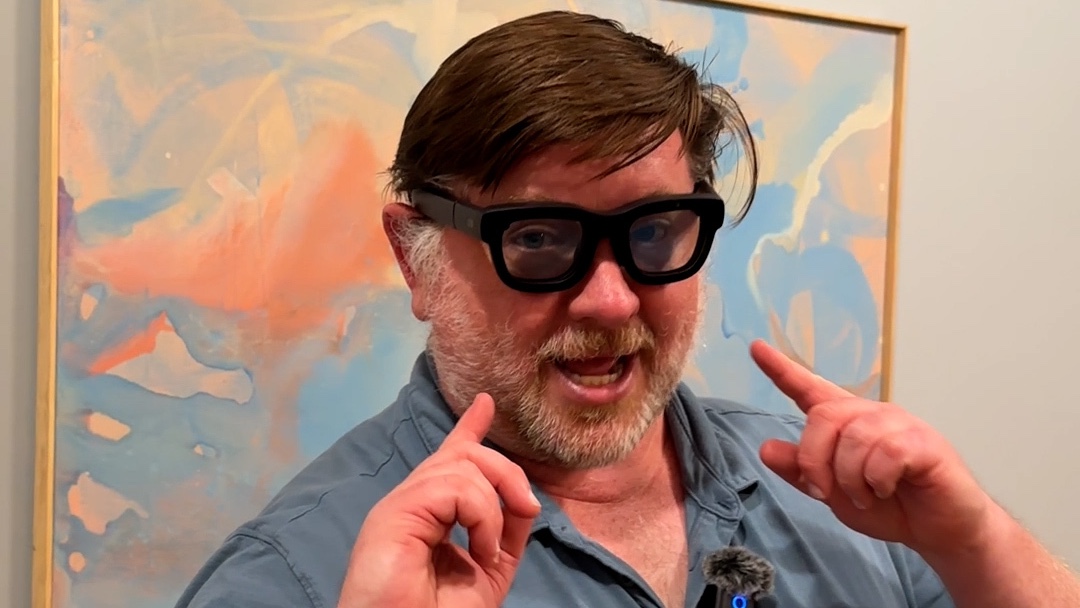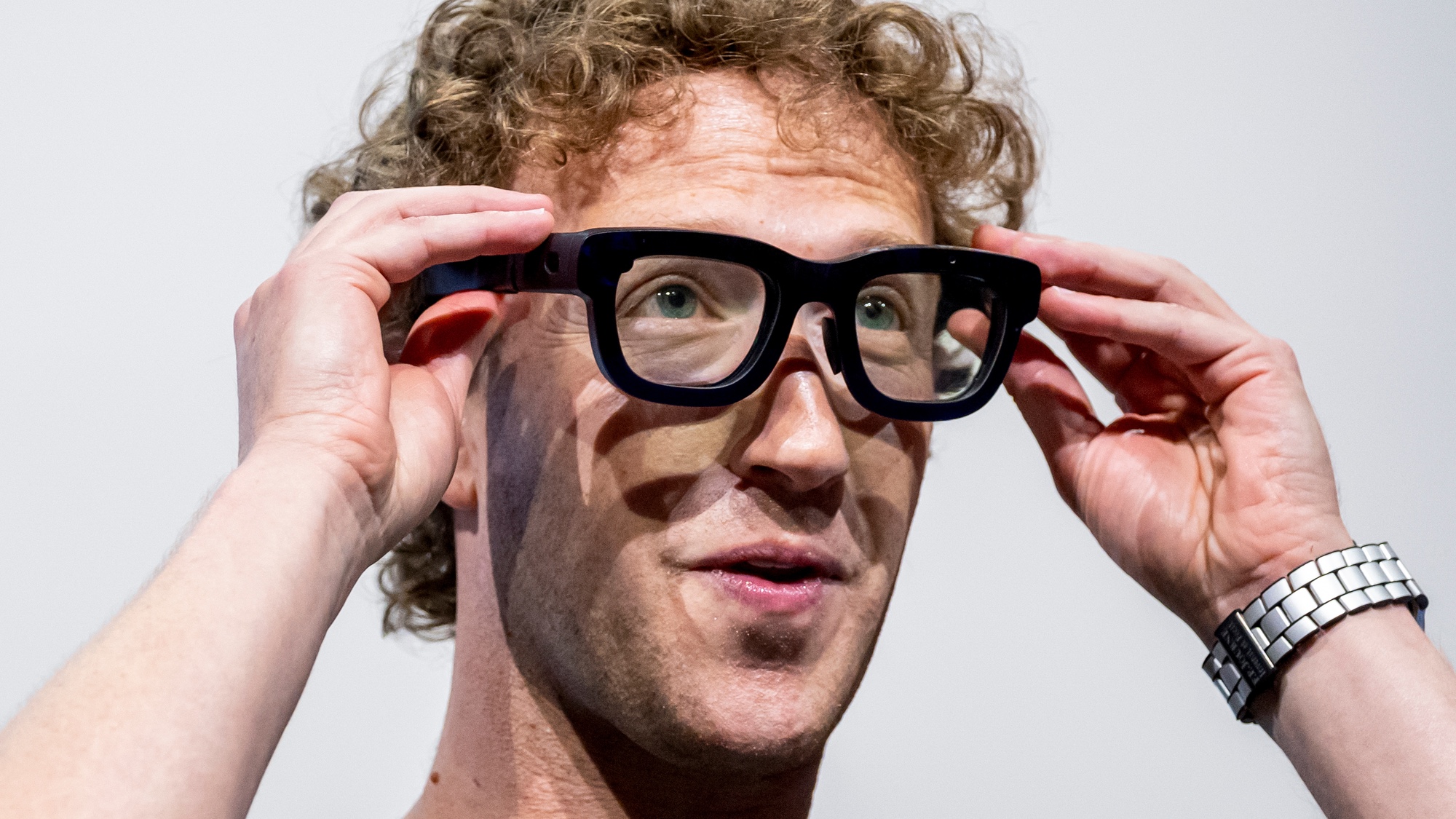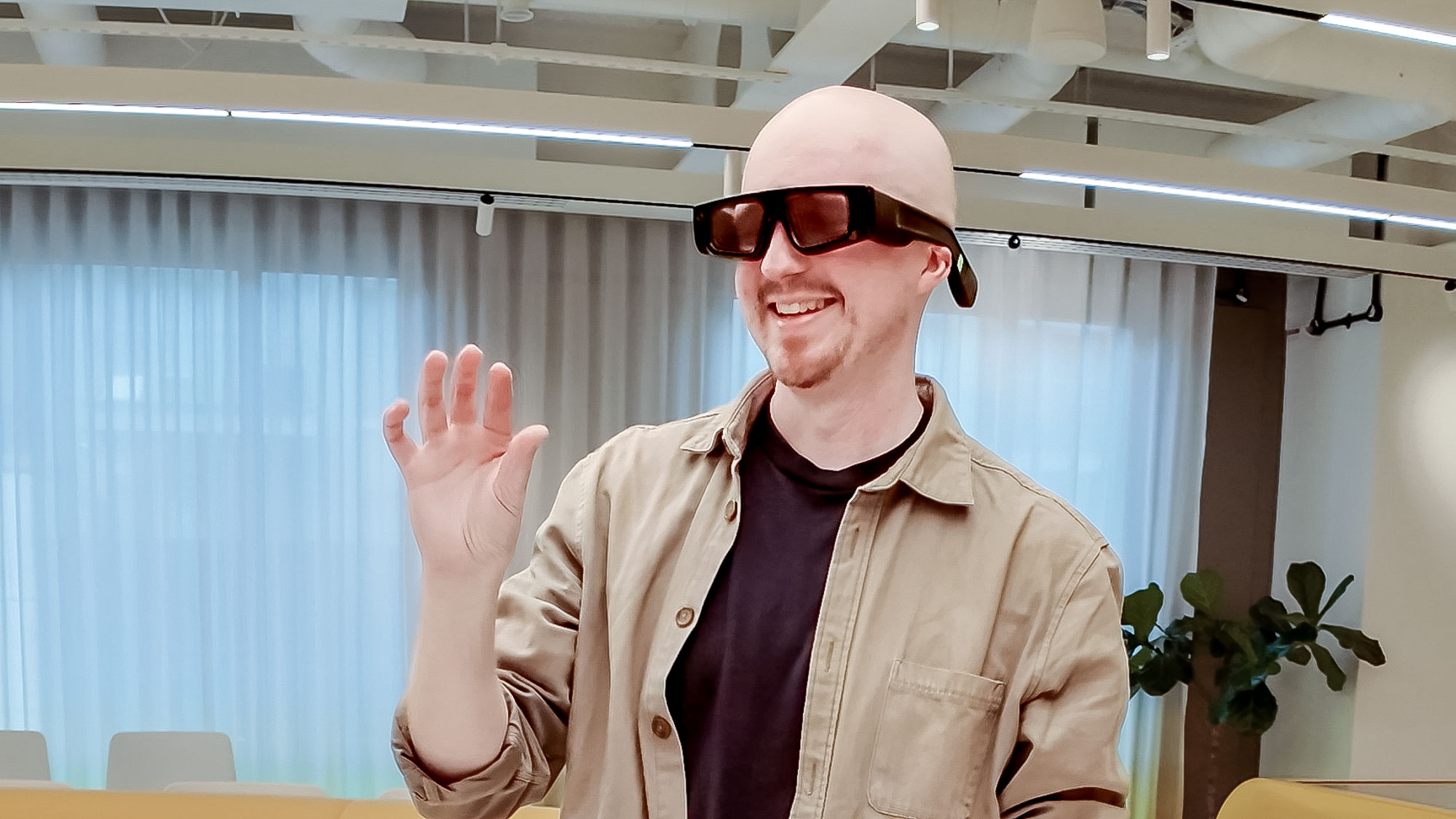Tech CEOs think I'm going to trade my phone for smart glasses — here's why they're wrong
I don't need constant connectivity in my face

Maybe you're spending this weekend looking into buying one of the best phones. Or you're spending your idle time thinking about the iPhone 17 or the Pixel 10 or any one of the number of phones coming out later this year and what new features they'll bring. Or maybe you just want to read up on ways to get more out of the phone you have.
A not insignificant number of tech CEOs and influencers think that you're wasting your time on a technology that's living on borrowed time. Instead, in a few years, all that attention you're spending on phones will instead gravitate to the next big thing in tech — smart glasses.
Smart glasses already exist, though not in a form that would make them widely used outside of a few specialized circumstances. But that's apparently changing, to the point that in a few years, when we need to read an email, get directions or send a message, we'll pop on a pair of smart glasses to do it, with all the information we need floating right there in our field of vision.
The biggest proponent of phones making way for smart glasses is Meta, a company that does not make phones but sure is investing a lot to make its own smart glasses. The way Mark Zuckerberg sees it, the transition from phones to glasses is going to closely mirror what happened to computers once smartphones started appearing on the scene.
"It’s not like we’re going to throw away our phones, but I think what’s going to happen is that, slowly, we’re just going to start doing more things with our glasses and leaving our phones in our pockets more," Zuckerberg told The Verge last fall.

Zuckerberg's not the only tech CEO convinced that the future will be worn on your face, not held in your hand. Not too long ago, Bloomberg's Mark Gurman reported that Apple's Tim Cook is all in on smart glasses, with the prospect of Apple one day offering up its own pair becoming the Apple CEO's main focus. “It’s the only thing he’s really spending his time on from a product development standpoint,” one anonymous source is quoted as saying in the Bloomberg article.
Zuckerberg and Cook didn't rise to positions of vast power, wealth and acclaim by listening to lil ol' me, and I wouldn't pretend to speak for anyone other than myself. It's very possible that the vast majority of people out there can't wait to toss aside their phones to embrace the promise of smart glasses.
But I am not one of those people. I just want to keep using a phone please.
The problem with glasses

Look, it's not like I have anything against mixed-reality headsets. Well... actually, that's not true. I have quite a bit against headsets in that I find them quite uncomfortable and disorienting to wear for long stretches. I've said before that my favorite moment of any headset demo is the precise point I get to take it off and not put it on anymore. And that generally goes for glasses as well.
But even an unrepentant headset hater like myself has to admit that the current crop of smart glasses currently in development are getting better. I tried a Meta Orion AR glasses prototype last year and was surprised when I didn't immediately want to take them off; it was even more surprising to actually find some of the features useful. And the Snap Spectacles I've tried were not without their charms, either.
I'm not entirely comfortable with the gesture-based controls for glasses like Orion, and while the 70-degree field of view for AR features is better than what similar products have offered, it still feels more constricting than a conventional display. But even if those reservations of mine get addressed with further development, I still don't picture myself as an enthusiastic smart glasses wearer.
My problem boils down to this: it's not that smart glasses are a solution looking for a problem, but rather they're the wrong solution for a problem that's easier to solve than we're making out.
Less screen time, not persistent screen time

Let's take it on point that we spend far too much time staring at our phone screens. We're focused on the 6-inch-or-so panel in our hands, the thinking goes, and not enough on what's happening around us.
Smart glasses seem to take the position that you should focus on both, and I'm not sure that's an improvement on things. Am I any more engaged in that conversation my wife is trying to have with me, if I'm making eye contact with her while surreptitiously reading the email I've superimposed over her instead of staring at it on my smartphone screen. Better to set aside that email entirely, I think.
Smart glass advocates would argue that you don't have to always be pulling up email and messages on your display, that you can set aside that stuff just as easily as you would with a phone. But I would counter that when something can appear right in front of you at any time, it's harder to ignore it. And we should always remember that even tech created with the best of intentions can have unintended consequences.

I got a taste of how easy you can fall into that rut earlier this month when I took my daughter to Disneyland, a place that has now offloaded everything from park tickets to ride reservations on to its mobile app. That not only means constantly checking your phone to book your next ride, but also wondering in the back of your mind if you have enough battery life for your phone to get through the day — all on a vacation where you should really be more engaged with the people around you.
Fortunately, the opposite ended up happening. Because I wanted to make sure my iPhone wasn't running out of gas before the park closed, I kept glances at the phone screen to a bare minimum — just reserving those Lightning Lane spots and redeeming them before the phone went back in my pocket. As a result, I spent my time in line talking to my daughter and taking in the sights, which is how vacations are supposed to work.
I don't think I would have had the same experience on that trip with smart glasses. The interruptions would be constant, the temptation to check email or social media too present to ignore. That's not a trip I want to go on.
Smart glasses outlook
Again, this comes from a man who's disinclined to give smart glasses a fair shake as they're current conceived. It's possible that over the next five to 10 years, the glasses get better, the phones become less relevant, and I'm donning a pair of Apple Glasses without complaint, just like the rest of you.
I only hope that tech companies remember that every now and then, I'm going to want to take these things off.
More from Tom's Guide
Sign up to get the BEST of Tom's Guide direct to your inbox.
Get instant access to breaking news, the hottest reviews, great deals and helpful tips.
Philip Michaels is a Managing Editor at Tom's Guide. He's been covering personal technology since 1999 and was in the building when Steve Jobs showed off the iPhone for the first time. He's been evaluating smartphones since that first iPhone debuted in 2007, and he's been following phone carriers and smartphone plans since 2015. He has strong opinions about Apple, the Oakland Athletics, old movies and proper butchery techniques. Follow him at @PhilipMichaels.
You must confirm your public display name before commenting
Please logout and then login again, you will then be prompted to enter your display name.

